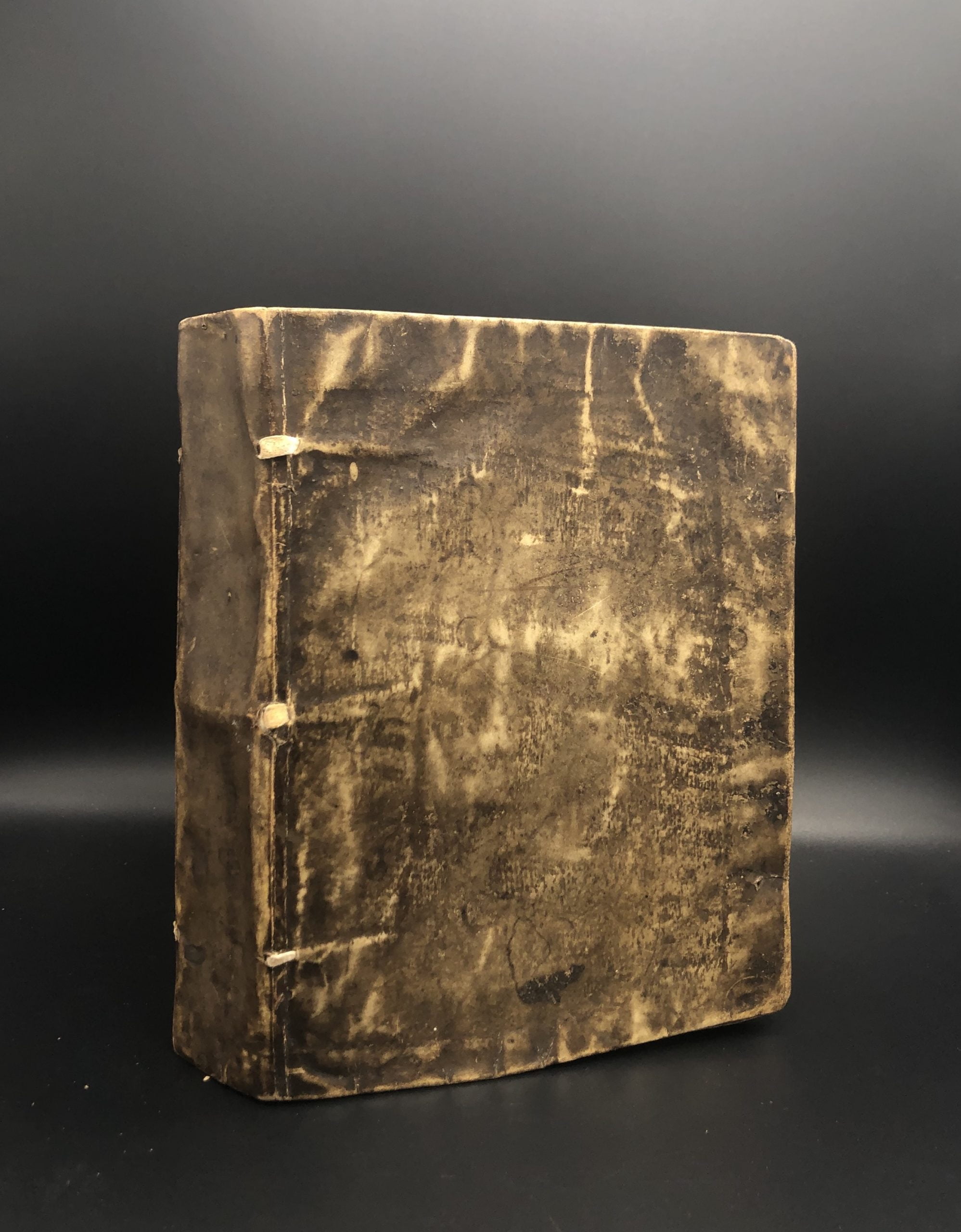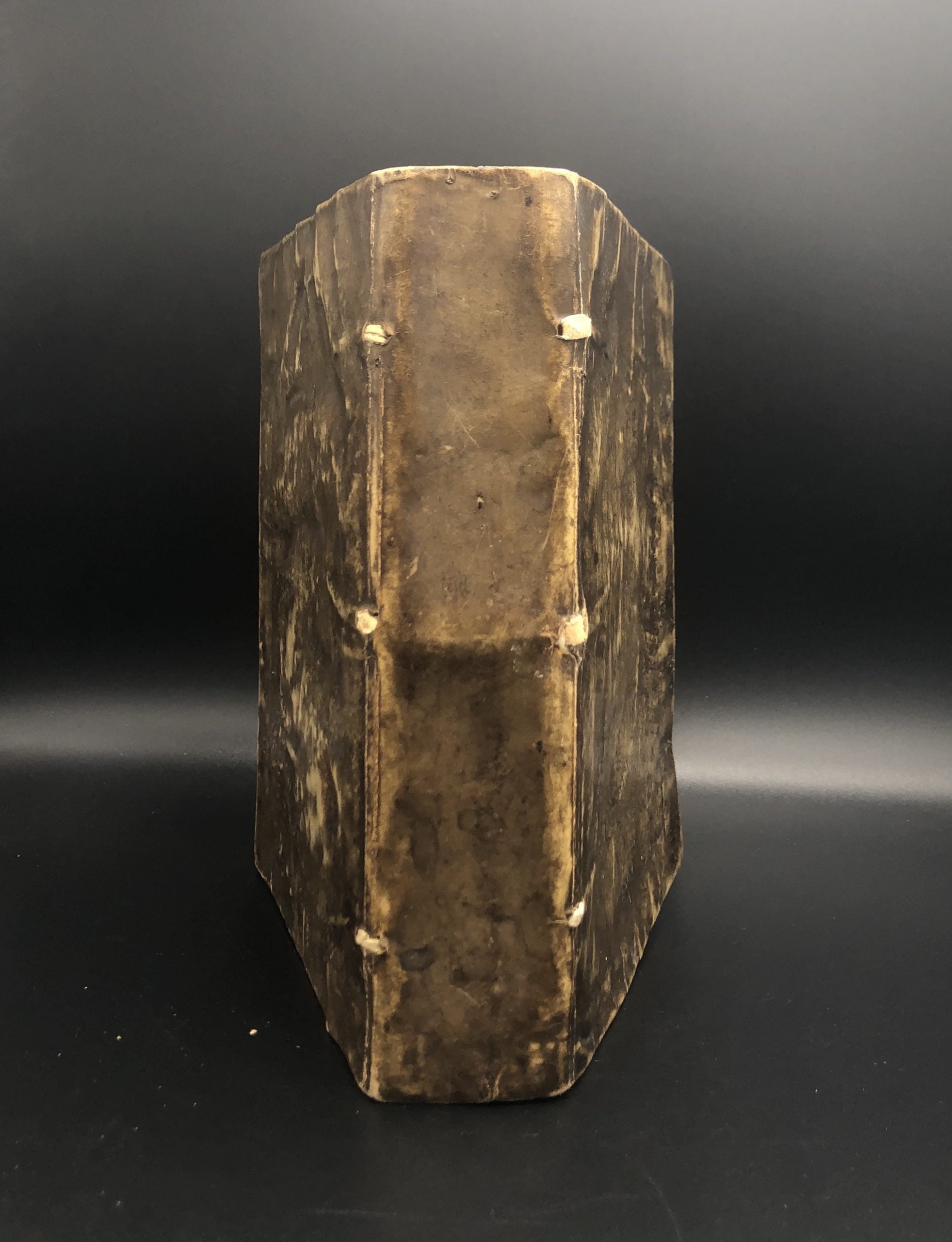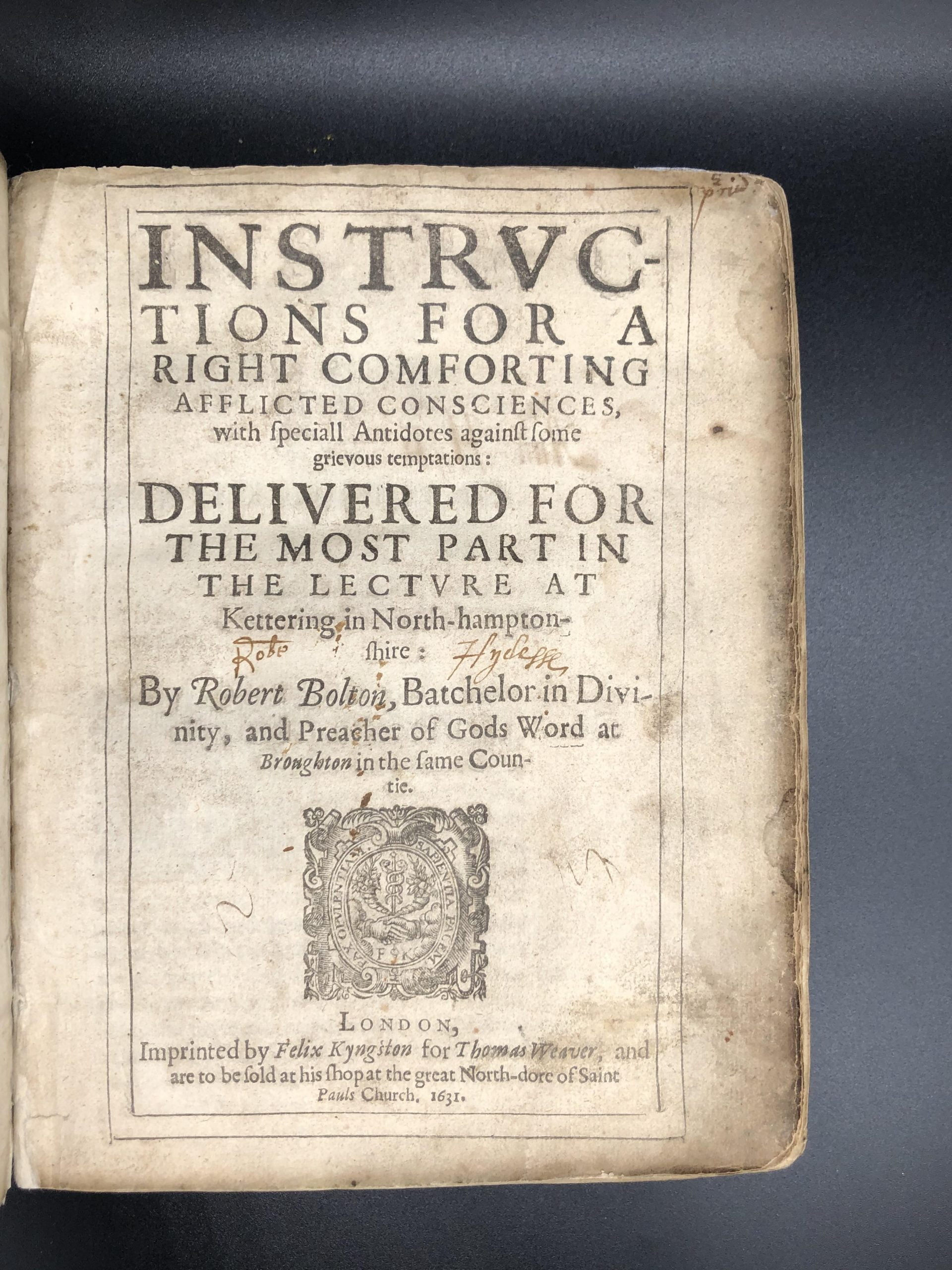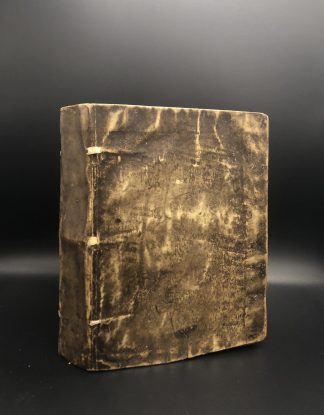BOLTON, Robert
Instructions for a right comforting afflicted consciences, with speciall antidotes against some grievous temptations:
London, Imprinted by Felix Kyngston for Thomas Weaver, 1631£1,650.00
FIRST EDITION. 4to. pp. [xxviii], 560. [par.] (±[par.]3), A , B-2N . [par.]3 is a cancel. Variant with cancellandum dedication to Sir Robert Carre, “Gentleman of the Kings Bed-Chamber, &c.” Roman and Italic letter. Title within double line rule with small woodcut printer’s device, woodcut initials and head-pieces, “Robert Hyde” on title, “Ann Hyde her Booke” on verso of t-p “You must H…” on verso of last, both in contemporary hands, ‘Edward? Hyde his buke’ on vellum turn in, ‘J Sowerbutts 1877’ on fly. Light age yellowing, title page dusty and a little soiled in outer margin, minor dust soiling in places, rare mark or stain. A very good copy, crisp and clean in contemporary limp vellum, soiled, ties renewed.
First edition of this important Puritan work dealing with spiritual Melancholy by the noted Puritan preacher Robert Bolton (1572-1631). “Robert Bolton, who wrote Instructions for a Right Comforting Afflicted Consciences in 1631, was perhaps one of the most staunch disparagers of the “horrible humour” (Melancholy). Bolton was a rector of Broughton, Northamptonshire, and a well-known conformist preacher. While he differentiated “grief occasioned by humoral imbalance from sorrow born of a repentant conscience” like many of his contemporaries in the period, he set himself somewhat apart from other writers by cautioning his readers even against excessive “godly sorrow.” If inappropriately managed, he believed it was a corrupting source that could prevent one from doing the works required of a good Christian. Interestingly, he describes the effect of sorrow on the body by envisioning it within a bodily context, suggesting that grief “grates most upon the vitall spirits; dries up soonest the freshest marrow in the bones; and most sensibly suckes out the purest, and refinedst bloud in the heart.” His book functions as a guide of sorts, warning readers against falling prey to sorrow. He contends that melancholy can be alleviated through spiritual purification, with the sadness generated by black bile cleansed by devotion to God.” CRRS Toronto University.
“Other English Calvinists agreed that the afflicted conscience was not to be confused with melancholy. …. Closer attention to melancholy was given by Robert Bolton in his Instructions for a right comforting afflicted consciences (1631), which called for ‘the art, and aide of phisicke’ to ‘bee improov’d, to abate and take off the excesse and phantasticalnesse of this horrible humour’. For Bolton, melancholy could be alleviated through spiritual purification: in the ‘sanctified man’, the ‘melancholicke matter’ could be ‘mollified and moderated by spirituall delight, and sovereignty of grace’, and the sadness generated by black bile could be converted into tristitia secundum Deum. But Bolton still followed Bright and Perkins by insisting on the distinction between melancholy and affliction of conscience, principally on the grounds that the former was a corporeal condition treatable by ‘the aide and excellency of the art of physicke’, rather than a ‘spirituall distemper’ that can be comforted only by ‘Christ, Christ, and nothing but Christ’.” Angus Gowland. ‘Consolations for Melancholy in Renaissance Humanism’.
“Bolton’s vision of tranquility is pleasurable rather than ascetic and is distinctly worldly. Spiritual Joy is tied to earthly life and its fleeting temporality. Bolton warns, in ‘Instructions for a right comforting’ that the window of opportunity for storing up joyful helps for the spirit is short ..He urges melancholy readers to protect their souls by making a “wise, and happy treasuring up. of heavenly hoards, and comforts of holinesses aforehand,””Stephanie Shirilan. ‘Robert Burton and the Transformative Powers of Melancholy’.
A good unsophisticated copy of an important book of Puritan theology.
ESTC S106257. STC 3238. Lowndes I 233.In stock











